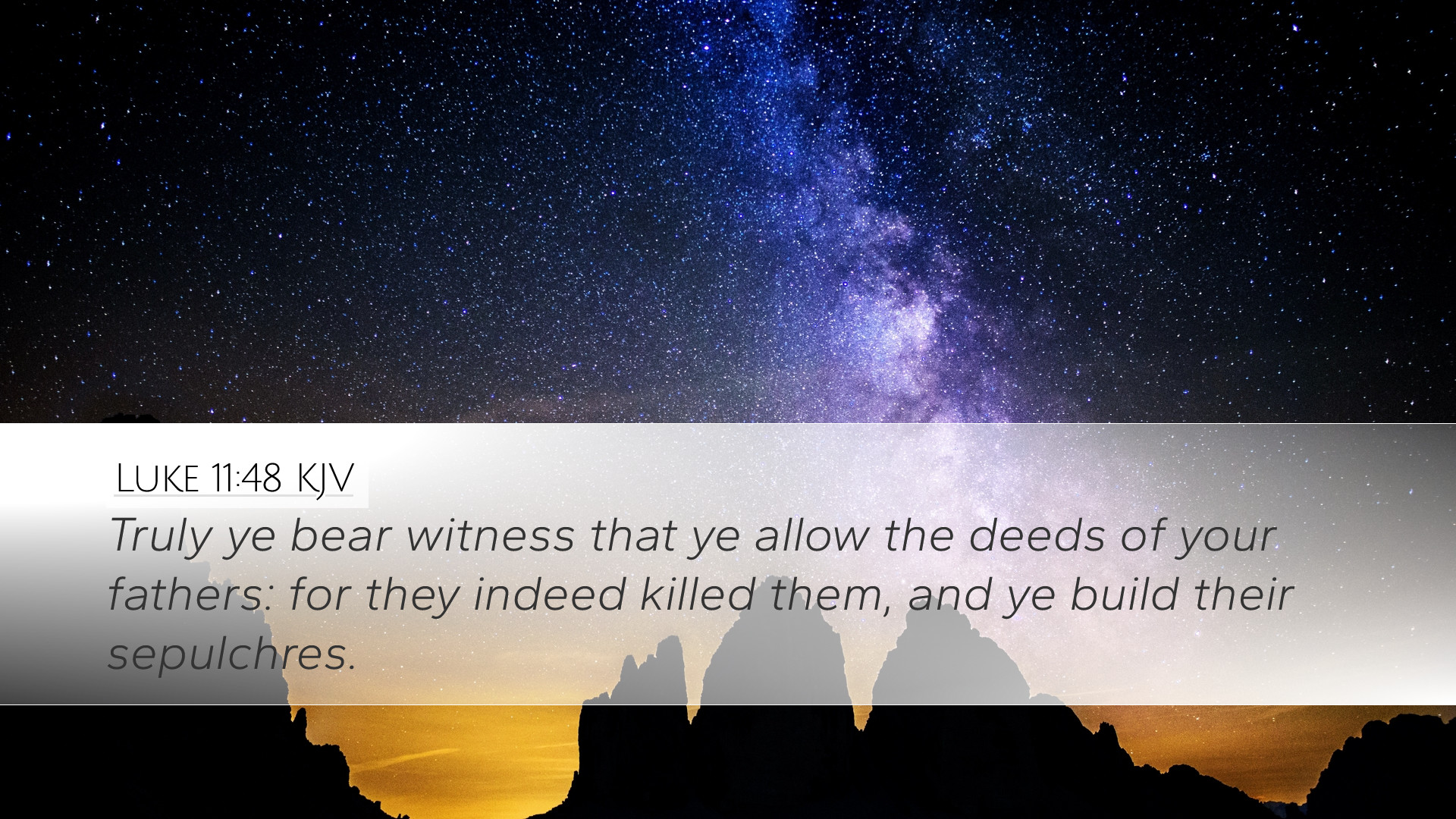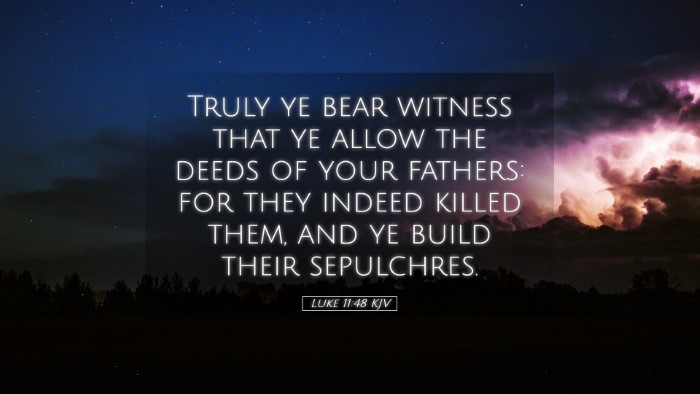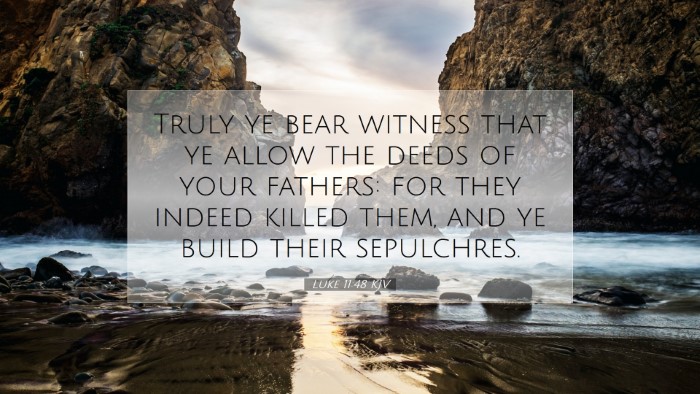Commentary on Luke 11:48
Luke 11:48 states, "So you testify that you approve of what your ancestors did; they killed the prophets, and you build their tombs." This verse carries significant theological implications and serves as an indictment against the hypocrisy of the religious leaders during Jesus' time. This commentary synthesizes insights from public domain scholars like Matthew Henry, Albert Barnes, and Adam Clarke.
Contextual Overview
This verse occurs in the midst of Jesus' denunciations of the Pharisees and the lawyers (or scribes). He speaks to a generation that is more concerned with the appearance of piety than with the substance of righteousness. This pivotal moment highlights the tension between true prophetic tradition and the falsehoods perpetuated by those in power.
The Historical Significance
Matthew Henry emphasizes that the act of 'building tombs' indicates a veneration for the prophets, yet this veneration is superficial. The Pharisees honored the memory of the prophets while denying their messages. The tombs become symbols of hypocrisy; the leaders claim fidelity to the prophets while, in reality, they perpetuate the cycle of persecution against God’s messengers.
Albert Barnes expands on this by illustrating how the Jewish leaders’ actions are contradictory. They affirm the righteousness of the prophets' deaths but fail to recognize their own culpability in the ongoing rejection of God’s word. Their actions reflect a type of spiritual blindness that, even amidst their pious expressions, leads them to perpetuate the very injustices they claim to condemn.
Psychological and Spiritual Implications
Adam Clarke discusses the psychological aspect of this verse, noting that it reflects a larger truth about human nature—our propensity to dishonor what we outwardly revere. The leaders of Jesus' day exhibited misplaced values, which resonate with believers today. They claim to honor God but reject Christ, demonstrating a fundamental dissonance between belief and practice.
Examination of Hypocrisy
The primary theme of hypocrisy surfaces prominently in this verse. Jesus lays bare the duplicity of the religious authorities, who elevate the dead prophets while rejecting the living truth standing before them. This reflection is pertinent for modern-day believers and leaders:
- True Honor: Are we honoring God genuinely, or merely paying lip service?
- Recognition of the Prophetic: Do we recognize and heed the voices of God’s messengers in our lives today?
- Cycle of Rejection: How do we avoid the patterns of history that lead to the rejection of truth?
The Call for Authenticity
Jesus' words serve as a call to authenticity in faith. Henry articulates the importance of aligning actions with beliefs, urging leaders to match their external expressions with internal convictions. This authenticity is essential for spiritual growth and for fostering a community that genuinely seeks after God’s heart.
Implications for Ministry and Scholarship
For pastors and theologians, Luke 11:48 serves as a poignant reminder to:
- Preach against the cultural currents that prioritize tradition over truth.
- Work diligently to ensure that the ministry honors God's prophets both past and present.
- Engage critically with the text to discern modern-day applications of its lessons on integrity and faithfulness.
Conclusion
In conclusion, Luke 11:48 is a profound reflection on the nature of faith and the dangers of hypocrisy. The insights drawn from Henry, Barnes, and Clarke reveal the persistent relevance of Jesus’ words through the ages. As students and scholars of the Bible, let us heed this warning and pursue a faith that transcends mere tradition and embodies the teachings of Christ in our daily lives.


